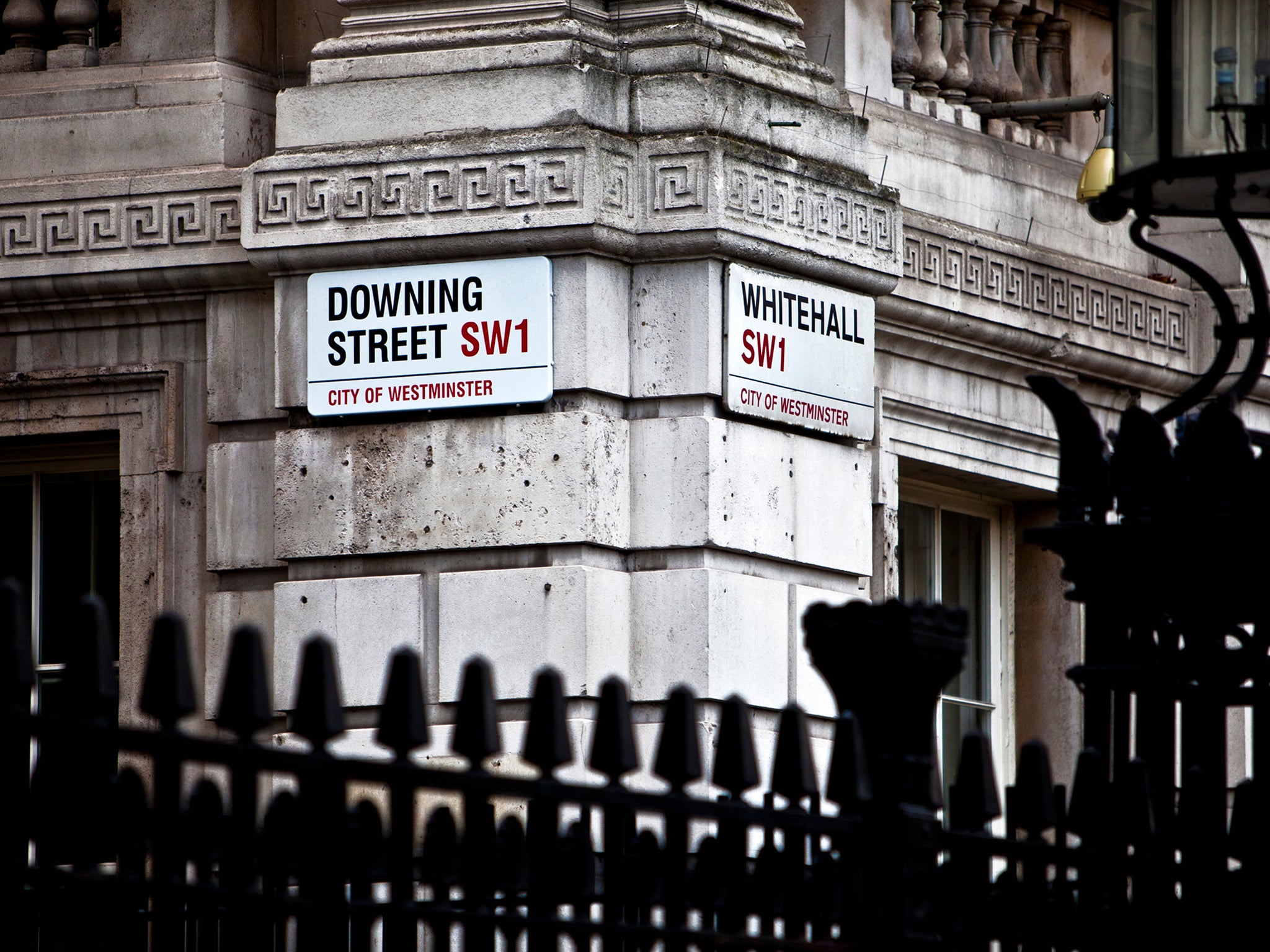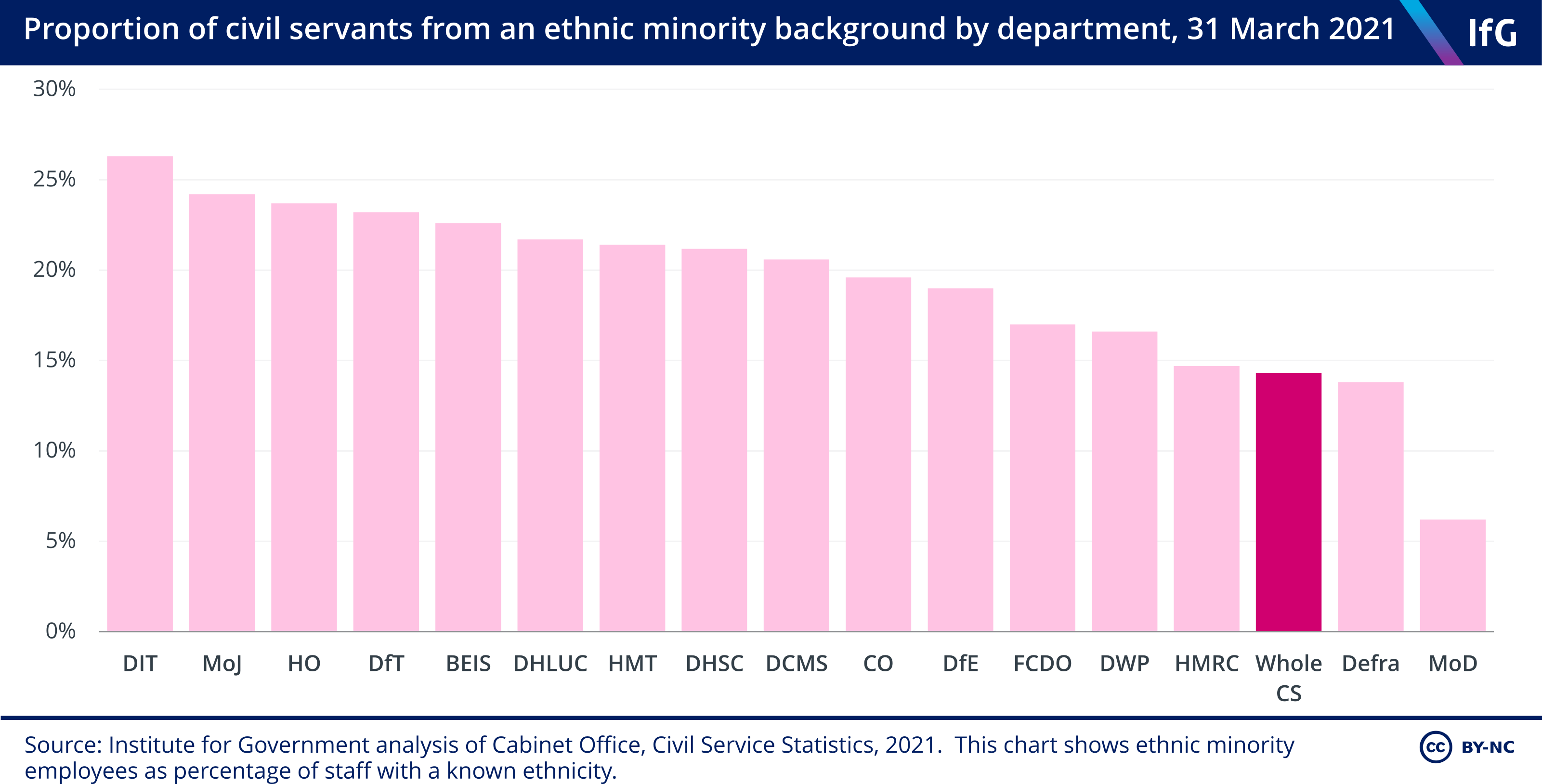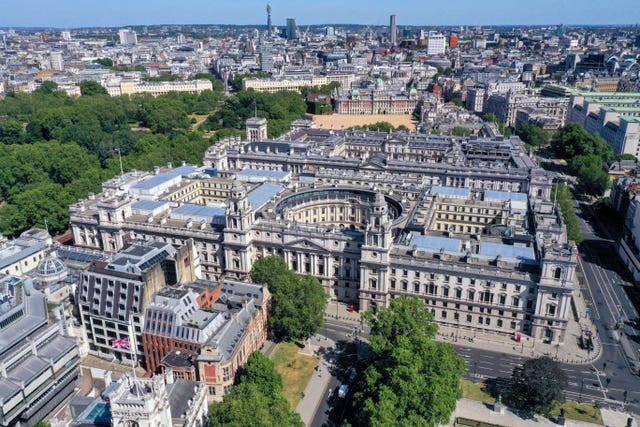Civil Service still failing on diversity, new figures reveal
Just 6.2 per cent of Ministry of Defence staff come from ethnic minority background, while ethnic minority candidates are also less likely to be accepted onto civil service graduate scheme

Your support helps us to tell the story
From reproductive rights to climate change to Big Tech, The Independent is on the ground when the story is developing. Whether it's investigating the financials of Elon Musk's pro-Trump PAC or producing our latest documentary, 'The A Word', which shines a light on the American women fighting for reproductive rights, we know how important it is to parse out the facts from the messaging.
At such a critical moment in US history, we need reporters on the ground. Your donation allows us to keep sending journalists to speak to both sides of the story.
The Independent is trusted by Americans across the entire political spectrum. And unlike many other quality news outlets, we choose not to lock Americans out of our reporting and analysis with paywalls. We believe quality journalism should be available to everyone, paid for by those who can afford it.
Your support makes all the difference.The civil service is still failing on diversity from top to bottom of the organisation, new figures reveal.
Just 6.2 per cent of Ministry of Defence (MoD) staff are black, Asian or minority ethnic, according to statistics published by the Institute for Government (IfG) think-tank in its annual Whitehall Monitor.
While the Department for Work and Pensions (DWP) has the highest proportion of both female civil servants (65 per cent) and disabled civil servants (18.2 per cent) across all departments, it has one of the lowest proportions of civil servants from an ethnic minority background.
In 2021, the civil service became more diverse with some 14 per cent of civil servants identifying as coming from an ethnic minority background, including 11 per cent of senior civil servants, compared with 13 per cent of the economically active population.
The Department for International Trade (DIT) is by far the most ethnically diverse department, figures reveal, with more than a quarter of civil servants coming from an ethnic minority background. However, it is one of the few departments where less than half of civil servants are female.

The proportion of black, Asian and minority ethnic senior officials has more than doubled, the IfG found, but the senior civil service is still lagging behind the civil service as a whole, and the UK as a whole, in terms of racial and gender diversity as well as that of disabled people.
In June 2021, as part of the Declaration on Government Reform, the government committed to publishing “a diversity and inclusion strategy to better promote fairness and performance” before the end of the year in light of longstanding concerns around the organisation’s culture. However, this has not yet been published.
The civil service has been dogged by rumours of racism and bullying within its ranks and it recently emerged that a senior employee of the Cabinet Office tried to take their own life after “prolonged racial bullying” therein.
This comes as recent analysis highlighted that young people from black African backgrounds were three times less likely than white British applicants to gain entry to the UK Government’s elite Civil Service Fast Stream programme in 2021.
Figures covering the last three years’ worth of recruitment for the graduate scheme were placed online last week by the Government Skills and Curriculum Unit, which reveal stark ethnic inequalities in the number of people recruited onto the scheme designed to fast-track successful applicants into senior government roles.

Record numbers of graduates applied to join the Fast Stream over the period, with more than 160,800 external applicants for just 3,290 places, a success rate of just under 1 in 50.
However, the chances of success differed greatly depending on the ethnic background of the applicant – 122,000 applicants from white backgrounds applied between 2019 and 2021, and just over 2,700 won a place – a success rate of 1 in 44.
Whereas 14,042 applicants from African, Caribbean and other black backgrounds applied, and just 98 won a place – a success rate of 1 in 143.
Worryingly, the government has failed to provide a breakdown of the ethnic backgrounds of external applicants to the Fast Stream in 2021, which has previously been published each year since 2010.
That data has instead been combined with the figures for all recruitment, including internal schemes, making it impossible to compare success rates for external applicants from different ethnic backgrounds this year to previous ones.
Join our commenting forum
Join thought-provoking conversations, follow other Independent readers and see their replies
Comments